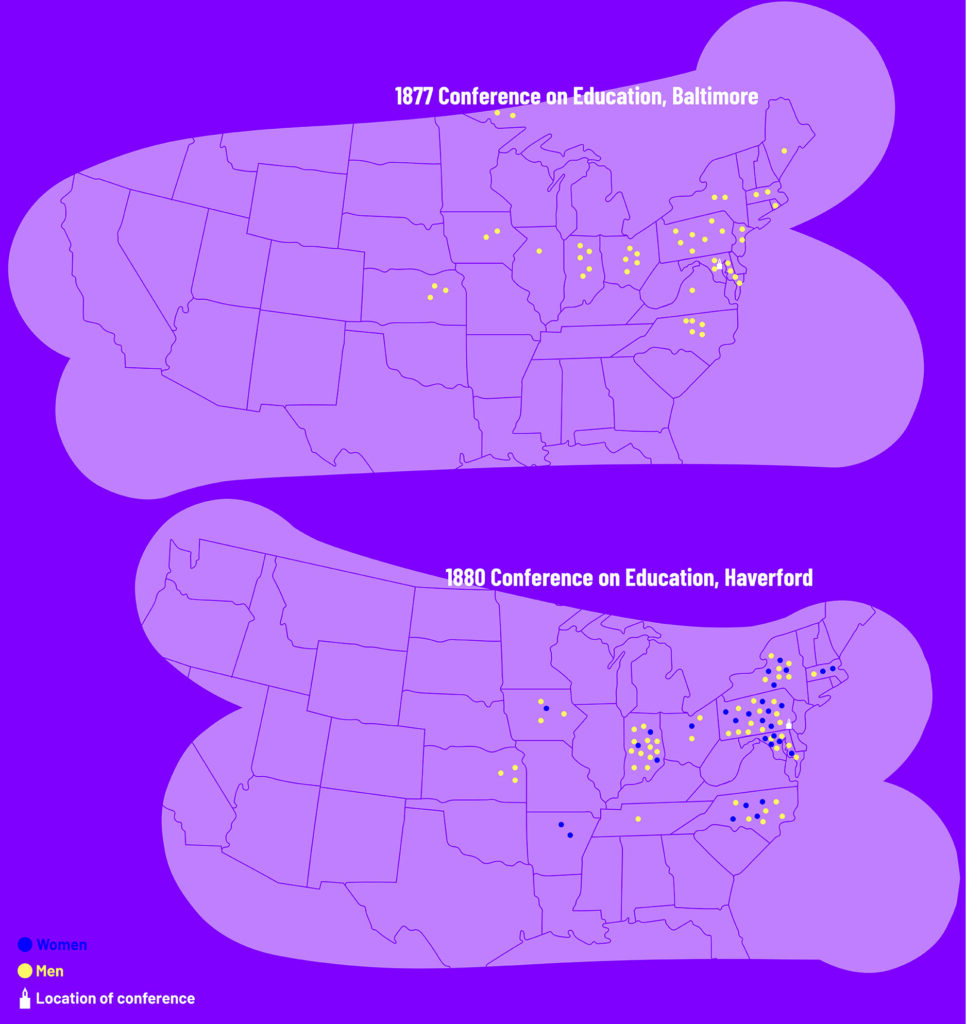First Conference, Baltimore, 1877
The purpose of the First Conference was to promote the cause of guarded higher education for Quakers and to facilitate students’ transition from academies and boarding schools to colleges. Delegates debated many practicalities and fundamental priorities in the education of young Friends. They declared a strong commitment to financing scholarships for qualified students who could not afford tuition. Dr. Joseph Wright Taylor attended the conference, having already voiced his intention to found a Quaker women’s college.
Second Conference, Haverford College, 1880
Held shortly after Taylor’s death, the Second Conference was an opportunity for Taylor’s executors to “appeal to the public sentiment of the Society [of Friends] to mould the future of Bryn Mawr College.” Speakers articulated conflicting visions for the future of Bryn Mawr.
Would the College furnish a guarded religious education, as Taylor had imagined? Or would it undertake a more worldly approach, fitting women for professional training? Could it preserve female health and feminine nature in an environment that resembled men’s colleges, or did women require a more domestic space for learning, akin to the homes of their fathers and future husbands? How rigorous could the curriculum be, given that women’s intellectual capacities and physical constitutions were different from men’s? Perhaps the idea for a women’s college should be abandoned and Taylor’s funds dedicated to renovating Haverford as a co-educational institution?
Other Quaker institutions of higher learning were also discussed, including Southland College (established in 1876), which was dedicated to the education of Freedmen and women. Henrietta Kitteral, a graduate of Southland and one of its first Black faculty members, spoke at the Conference, although her words were not recorded.
“Let none, either male or female, linger, but press onward and upward, with earnest step to higher culture and wider influence.”
Nereus Meldenhall, Proceedings of a Conference on Education in the Society of Friends (1877)
Our principles should be impressed upon the laws of the State. We should make our mark in the age, doing all to the glory of God.”
Henry Wood, Proceedings of a Conference on Education in the Society of Friends (1877)
Now we women have our chance! Boys have had a chance, but we never had one before. Let us see to it that we make the best use of it…What women want is power; not to support themselves but power to do something.”
Mary WhitallThomas, Proceedings of a Conference on Education in the Society of Friends (1880)

